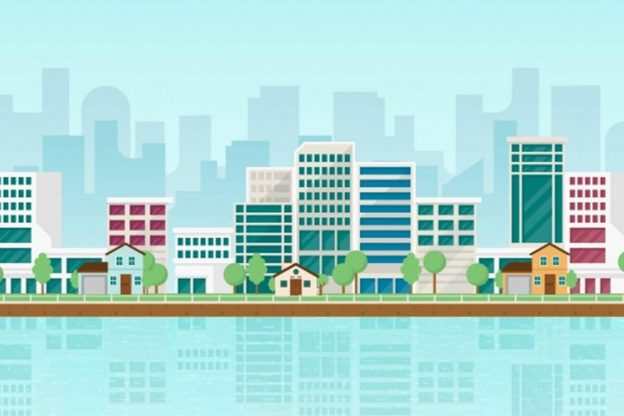Sustainable living along with personal workspace: The emerging new asset class
Residential properties are increasingly being perceived as a stable asset class due to assured and steady returns among HNIs, NRIs, and millennials mulling to invest in their homeland.
COVID-19 has also prompted developers to rethink their offerings to align with the tastes of discerning Indian homebuyers.
The residential real estate segment has witnessed a tectonic shift in recent times due to the socio-economic impact of the COVID-19 pandemic. Homebuyers are now recalibrating their preferences in line with the new normal. Real estate has been traditionally regarded as a safe haven and sound investment asset in the Indian ethos. COVID-19 has further accentuated the priority of buying homes against living with insecurities in rented accommodation.
Residential properties are increasingly being perceived as a stable asset class due to assured and steady returns among HNIs, NRIs, and millennials mulling to invest in their homeland. Also, the stock market and gold have seen their run giving investors a reason to plough their money into residential real estate.
The extended work from home has heralded a shift in consumers’ preferences towards residential offerings with a distinct workspace. This trend has prompted the redesigning of conventional residences with 2-BHK and 3-BHK configuration while considering workstation as an additional component in their product offering. These residences perfectly suit the ‘work from home’ (WFH) lifestyle for both Indians working with global firms and the expat communities.
COVID-19 has also prompted developers to rethink their offerings to align with the tastes of discerning Indian homebuyers. Residences located in self-sustainable oasis and endowed with state-of-the-art amenities, such as a gym, spa, a private space for weekend meetups, a kids’ play area, among others, have emerged as sought-after realty offerings. Location, ticket size, pleasing aesthetics and thoughtful design and cutting-edge technology are among the key factors influencing homebuyers’ decisions.
Homebuyers now consider their dream home as an address and a space of their ‘belonging’ to meet their psychological, emotional, and social needs. With some Indian and global organisations mulling a permanent ‘work from home,’ geography is no longer a constraint for homebuyers. It has pivoted the focus towards homes located on the outskirts of cities that have witnessed rapid infrastructural developments. Holiday homes or second homes to enjoy ‘staycation’ and ‘workcation’ are also gaining traction to escape the monotony of work from home. The health, hygiene and wellness concerns have also reaffirmed the significance of residences set amidst lush greenery and endowed with eco-friendly amenities such as green building certification, provision for harnessing solar energy and rainwater harvesting, etc.
With customer-centricity gaining currency, real estate developers are customising their product offerings as per homebuyers’ requirements. Customisation of space has been extended to such an extent that developers are offering complete open floors with the possibility of designing them as per homebuyers’ requirements from a range of standout design options. Residential real estate projects that are already in development or the planning phase are considering the ‘space’ element with a new approach, keeping in mind renewed choice of homebuyers.
The health and wellness concerns also imply that robust facility management will be an essential factor for homebuyers while choosing their home. With the customers prioritising values such as ethics, transparency and accountability, bridging trust deficit and maximising the customer experience will be the key priority for developers. It will invariably lead to the consolidation of the industry in favour of organised players with sound credentials and excellent track record.
Homes with a provision of a workspace have emerged as the new asset class and will continue being one of the most sought-after offerings in the post-COVID era to cater to the compact families of the Indian millennials and exemplify convenience and value-for-money propositions. The COVID-19 pandemic can be regarded as an inflexion point that has unlocked opportunities for Indian real estate to reform itself for a bright future. Bolstered by enabling government policies, initiatives by developers and robust infrastructure, we foresee a quick rebounding of Indian real estate in line with the new normal and contribute towards achieving the dream of a 5 trillion dollar economy by 2024.
https://www.financialexpress.com/money/sustainable-living-along-with-personal-workspace-the-emerging-new-asset-class/2366221/







